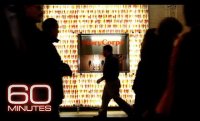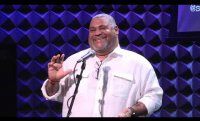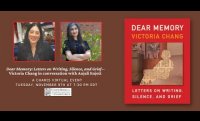Close out the first month of the new year by applying to contests with deadlines of January 30 or January 31. Eight of these opportunities are for fiction writers looking to submit anything from a short story to a novel-in-poems to flash fiction with a supernatural theme! All contests offer a cash prize of $1,000 or more, with one contest awarding a debut poet, age 70 or older, $3,000.
AKO Caine Prize for African Writing: A prize of £10,000 (approximately $13,794) is given annually for a previously published short story by a writer of African descent. Shortlisted writers will receive £500 (approximately $690). Writers who were born in Africa, who are African residents, or who have a parent who is African by birth or nationality are eligible. Deadline: January 31. Entry fee: None.
Black Lawrence Press Big Moose Prize: A prize of $1,000, publication by Black Lawrence Press, and 10 author copies is given annually for a novel. The contest is open to traditional novels as well as “novels-in-stories, novels-in-poems, or other hybrid forms that contain within them the spirit of a novel.” The editors will judge. Deadline: January 31. Entry fee: $27.
Crazyhorse Writing Prizes: Three prizes of $2,000 each and publication in Crazyhorse are given annually for a poem, a short story, and an essay. Aimee Nezhukumatathil will judge in poetry, Venita Blackburn will judge in fiction, and Matt Ortile will judge in nonfiction. All entries are considered for publication. Deadline: January 31. Entry fee: $20.
Ghost Story Screw Turn Flash Fiction Competition: A prize of $1,000 and publication on the Ghost Story website and in the 21st Century Ghost Stories anthology is given twice yearly for a flash fiction piece with a supernatural or magical realism theme. Tara Lynn Masih will judge. Deadline: January 31. Entry fee: $15.
Iowa Review Awards: Three prizes of $1,500 each and publication in Iowa Review are given annually for works of poetry, fiction, and nonfiction. Donika Kelly will judge in poetry, Louisa Hall will judge in fiction, and Inara Verzemnieks will judge in nonfiction. All entries are considered for publication. Deadline: January 31. Entry fee: $20.
Money for Women/Barbara Deming Memorial Fund Individual Artist Grants for Women: Grants of up to $1,500 each are given in alternating years to feminist poets, fiction writers, and nonfiction writers who are citizens of the United States or Canada. This year grants will be awarded to fiction writers. Deadline: January 31. Entry fee: $25.
New Millennium Writings Awards: Four prizes of $1,000 each and publication in New Millennium Writings are given twice yearly for a poem, a short story, a work of flash fiction, and a work of creative nonfiction. Previously unpublished works or works that have appeared in a journal with a circulation of under 5,000 are eligible. The editors will judge. Deadline: January 31. Entry fee: $20.
North Carolina Writers’ Network Thomas Wolfe Fiction Prize: A prize of $1,000 is given annually for a short story or a self-contained novel excerpt. Crystal Wilkinson will judge. Deadline: January 30. Entry fee: $25 ($15 for NCWN members).
Passager Books Henry Morgenthau III First Book Poetry Prize: A prize of $3,000 and publication by Passager Books will be given annually for a first book of poems by a writer age 70 or older. David Keplinger will judge. Deadline: January 30. Entry fee: $25.
Poetry Northwest James Welch Prize: Two prizes of $1,000 each and publication in Poetry Northwest will be given annually for a single poem by an Indigenous poet. The winners will also receive an all-expenses paid trip to read with the judge in the fall. Writers who have published no more than one full-length book and who are community-recognized members of tribal nations within the United States and its territories are eligible. Elise Paschen will judge. All entries are considered for publication. Deadline: January 31. Entry fee: None.
Visit the contest websites for complete guidelines, and check out the Grants & Awards database and Submission Calendar for more contests in poetry, fiction, and creative nonfiction.








